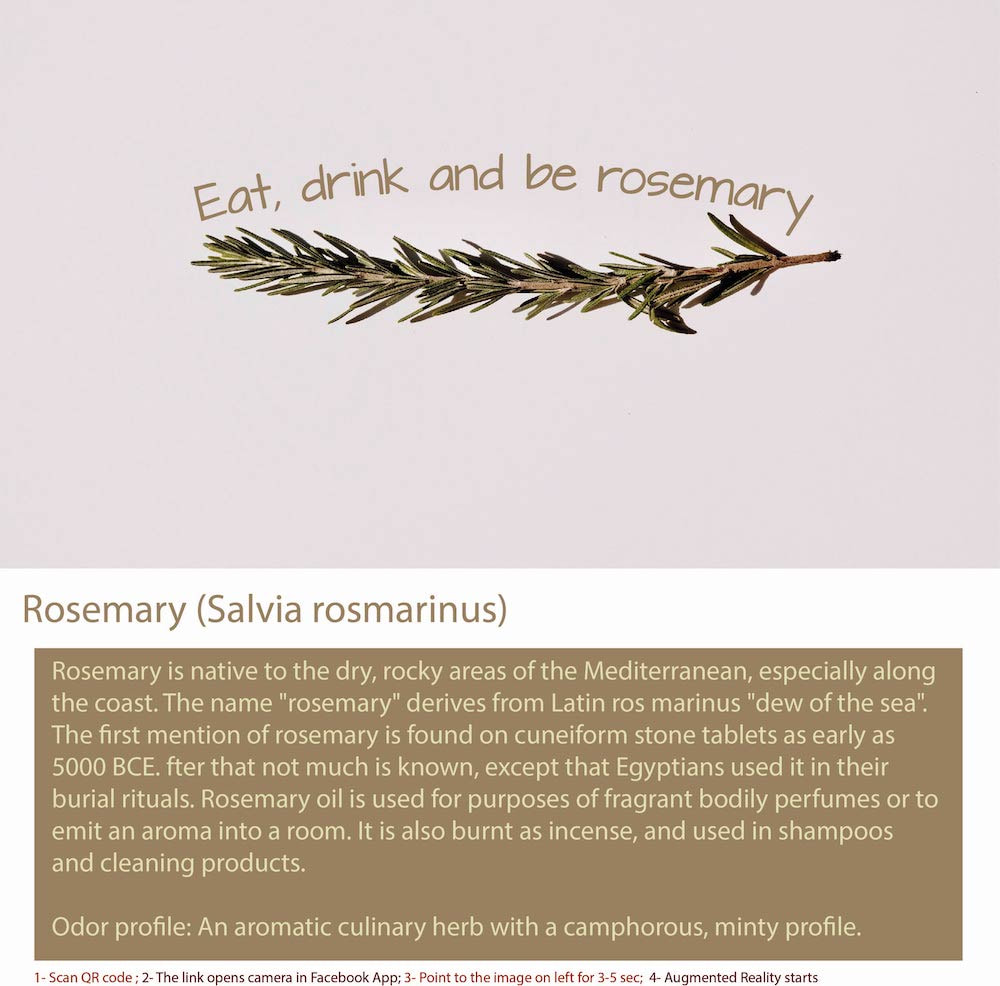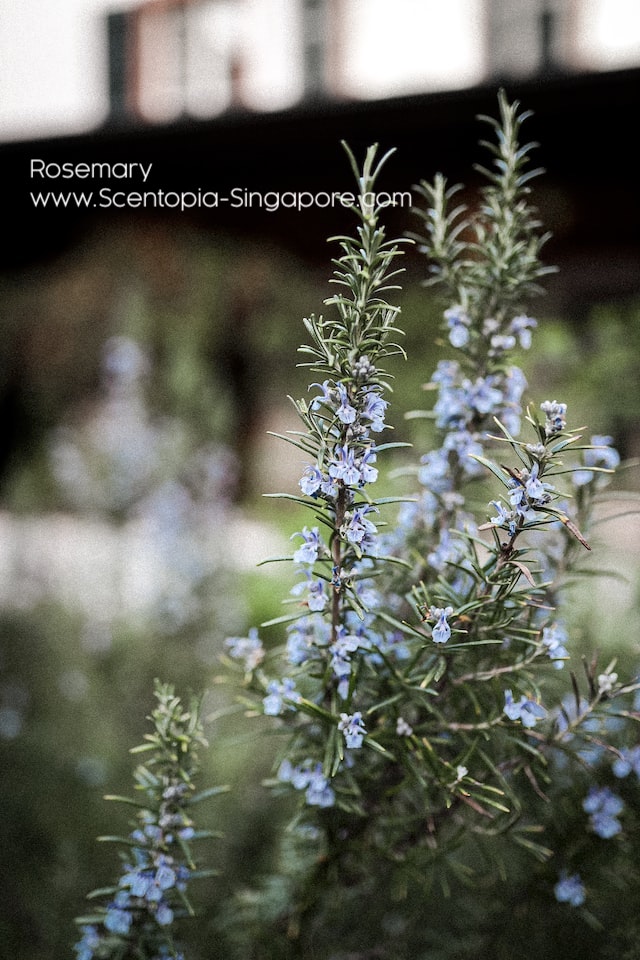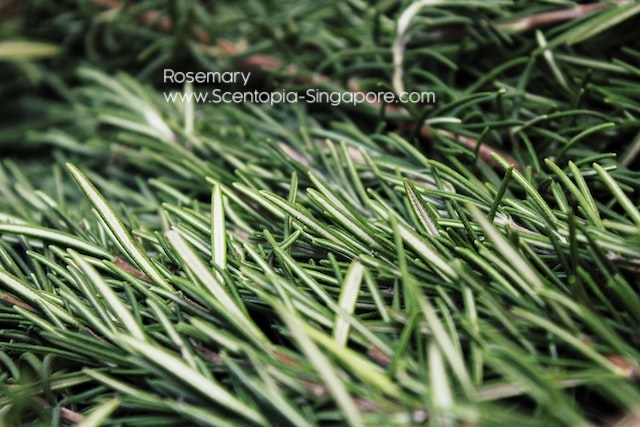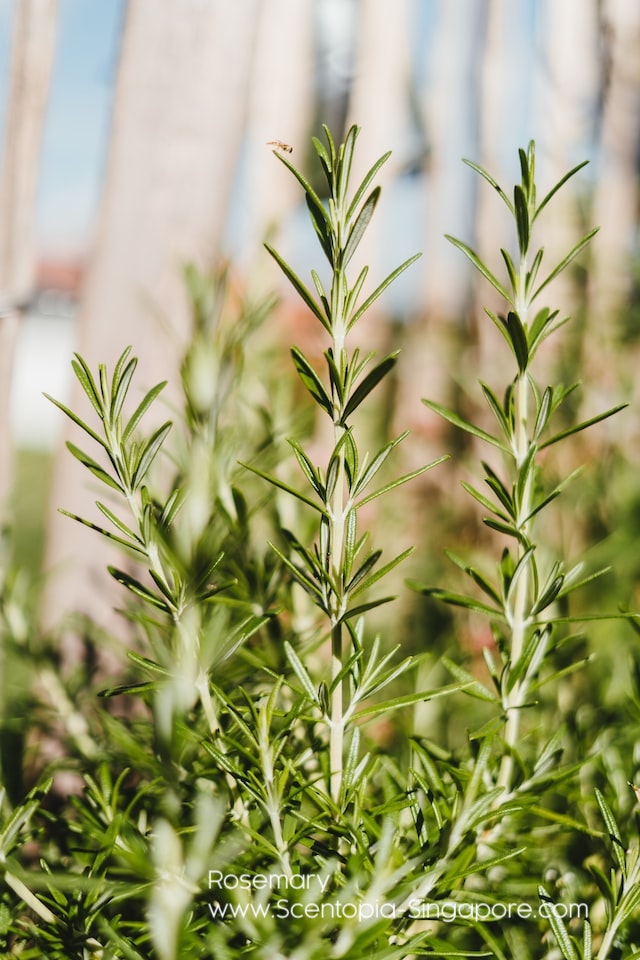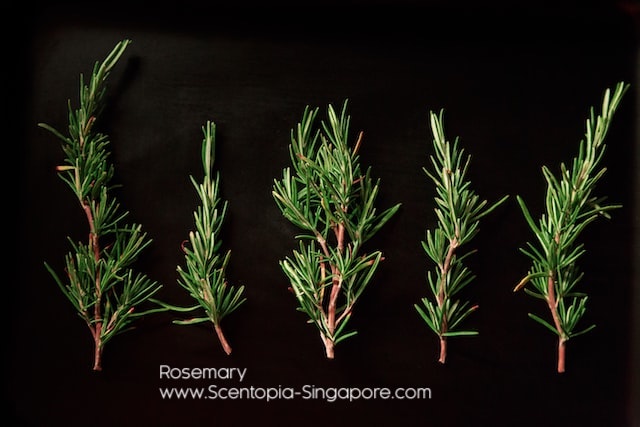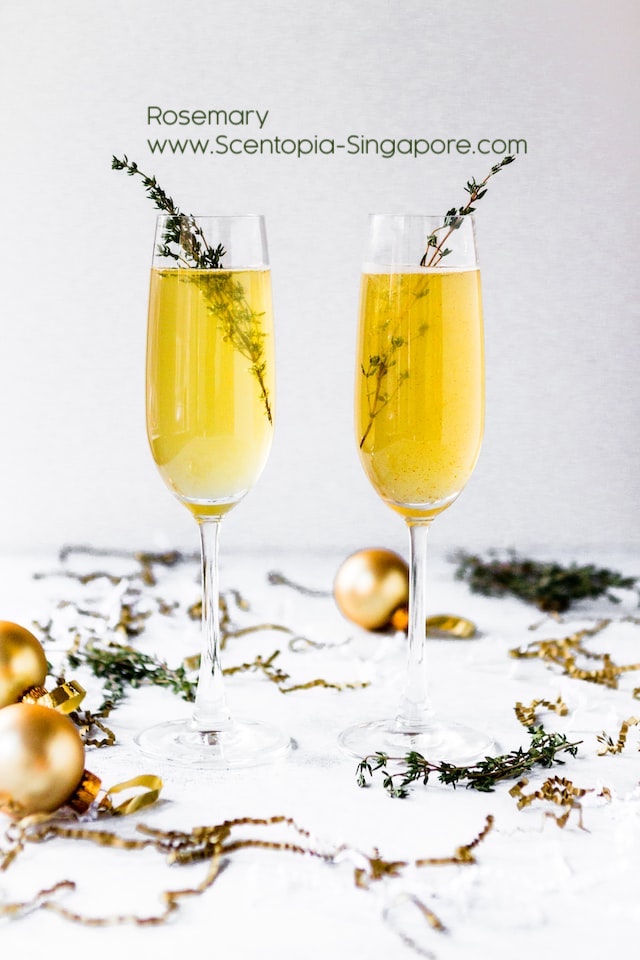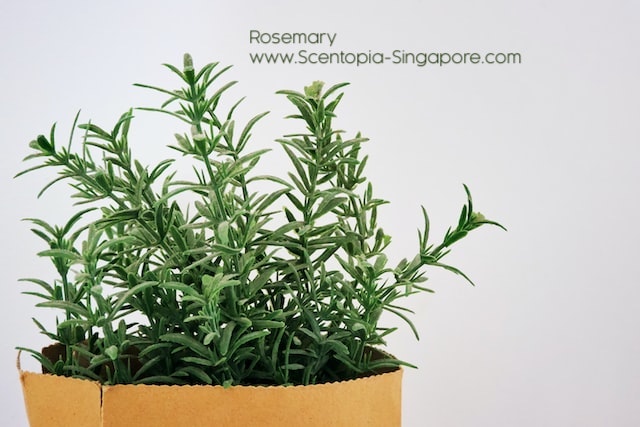Aromatic Herbal: Fragrant Rosemary
Rosemary: The Aromatic Herb of Perfumes, Healing, and Culinary Delights
Introduction: Rosemary, with its fragrant aroma and versatile uses, is an aromatic herb celebrated for its presence in perfumes, therapeutic oils, culinary creations, and traditional medicine. Scientifically known as Rosmarinus officinalis, this perennial herb belongs to the Lamiaceae family and has been cherished by cultures around the world for centuries. From inspiring perfumers with its invigorating scent to offering potential benefits in therapeutic oils and culinary delights, rosemary is more than just a herb. This essay delves into the captivating world of rosemary, encompassing its presence in perfumes, therapeutic oils, food, medicinal systems, historical significance, and intriguing fun facts about this extraordinary and cherished herb.
The Aroma of Rosemary: Rosemary is renowned for its distinctive aroma, which is both refreshing and invigorating. It plays a vital role in enhancing the appeal and flavor of various culinary dishes and herbal remedies.
Perfumes and Fragrance: Rosemary's invigorating and herbaceous fragrance has inspired perfumers to create scents that capture the essence of this delightful herb. Rosemary-inspired perfumes often evoke feelings of freshness, clarity, and vitality, making them popular choices for those seeking an uplifting and aromatic allure.
Therapeutic Oils and Aromatherapy: Rosemary essential oil is one of the most widely used essential oils in aromatherapy. Its aroma is believed to enhance mental focus, boost energy, and promote relaxation. The oil is extracted from the leaves and flowering tops of the rosemary plant.
Medicinal Applications: Rosemary has a long history of use in traditional medicine systems. It is believed to have potential benefits for digestion, memory and cognitive function, and as an antioxidant. Rosemary herbal teas and tinctures are used for their potential health properties.
Culinary Delights: Rosemary is a versatile herb used in various culinary creations. It pairs well with roasted meats, vegetables, and potatoes. Its aromatic flavor adds a delightful touch to a wide range of recipes, from soups and stews to marinades and sauces.
Historical Significance: Rosemary has a rich history dating back to ancient civilizations. It was considered a sacred plant by the ancient Greeks and Romans and was often used in religious ceremonies, as well as for its potential medicinal properties.
Fun and Crazy Facts:
Rosemary, with its aromatic allure and potential wellness benefits, is a cherished and versatile herb that continues to captivate and inspire with its invigorating scent and flavorful presence. From its use in perfumes to its potential benefits in aromatherapy and traditional medicine, rosemary offers a wealth of enjoyment and historical significance. As we savor the aromatic flavor and herbal fragrance of rosemary and explore its cultural significance, we are reminded of the enduring appeal and timeless charm of this extraordinary herb that has enriched our culinary traditions, perfumery, and herbal remedies with its unique beauty and invigorating presence.
Introduction: Rosemary, with its fragrant aroma and versatile uses, is an aromatic herb celebrated for its presence in perfumes, therapeutic oils, culinary creations, and traditional medicine. Scientifically known as Rosmarinus officinalis, this perennial herb belongs to the Lamiaceae family and has been cherished by cultures around the world for centuries. From inspiring perfumers with its invigorating scent to offering potential benefits in therapeutic oils and culinary delights, rosemary is more than just a herb. This essay delves into the captivating world of rosemary, encompassing its presence in perfumes, therapeutic oils, food, medicinal systems, historical significance, and intriguing fun facts about this extraordinary and cherished herb.
The Aroma of Rosemary: Rosemary is renowned for its distinctive aroma, which is both refreshing and invigorating. It plays a vital role in enhancing the appeal and flavor of various culinary dishes and herbal remedies.
Perfumes and Fragrance: Rosemary's invigorating and herbaceous fragrance has inspired perfumers to create scents that capture the essence of this delightful herb. Rosemary-inspired perfumes often evoke feelings of freshness, clarity, and vitality, making them popular choices for those seeking an uplifting and aromatic allure.
Therapeutic Oils and Aromatherapy: Rosemary essential oil is one of the most widely used essential oils in aromatherapy. Its aroma is believed to enhance mental focus, boost energy, and promote relaxation. The oil is extracted from the leaves and flowering tops of the rosemary plant.
Medicinal Applications: Rosemary has a long history of use in traditional medicine systems. It is believed to have potential benefits for digestion, memory and cognitive function, and as an antioxidant. Rosemary herbal teas and tinctures are used for their potential health properties.
Culinary Delights: Rosemary is a versatile herb used in various culinary creations. It pairs well with roasted meats, vegetables, and potatoes. Its aromatic flavor adds a delightful touch to a wide range of recipes, from soups and stews to marinades and sauces.
Historical Significance: Rosemary has a rich history dating back to ancient civilizations. It was considered a sacred plant by the ancient Greeks and Romans and was often used in religious ceremonies, as well as for its potential medicinal properties.
Fun and Crazy Facts:
- Rosemary in Literature: Rosemary has been mentioned in various literary works, including William Shakespeare's plays. In "Hamlet," Ophelia famously says, "There's rosemary, that's for remembrance."
- Rosemary as a Symbol: Rosemary has been associated with remembrance, love, and loyalty in various cultures, and it was often used in wedding ceremonies and funerals.
- Rosemary in Folklore: In some folklore, rosemary was believed to protect against evil spirits and bring good luck.
- Rosemary Traditions: In Mediterranean cultures, sprigs of rosemary are often placed on graves as a symbol of remembrance and as an offering to the deceased.
- Rosemary as a Hair Rinse: In ancient times, rosemary was used as a hair rinse to promote healthy and shiny hair.
Rosemary, with its aromatic allure and potential wellness benefits, is a cherished and versatile herb that continues to captivate and inspire with its invigorating scent and flavorful presence. From its use in perfumes to its potential benefits in aromatherapy and traditional medicine, rosemary offers a wealth of enjoyment and historical significance. As we savor the aromatic flavor and herbal fragrance of rosemary and explore its cultural significance, we are reminded of the enduring appeal and timeless charm of this extraordinary herb that has enriched our culinary traditions, perfumery, and herbal remedies with its unique beauty and invigorating presence.
To experience augmented reality, please open the Facebook-app using QR code and point to the image below
Benefits of Rosemary in Aromatherapy
Rosemary is an herb commonly used in cooking, originating from the Mediterranean region. It has a fragrant, pine-like aroma and is used in a variety of dishes, including meats, soups, sauces, and stuffings. It is also known for its potential health benefits, such as being a good source of antioxidants and having anti-inflammatory properties.
Rosemary has been used in traditional herbal medicine systems, including Chinese Traditional Medicine (CTM) and Ayurveda, for its potential therapeutic benefits. Some of these benefits include:
Rosemary has been used in traditional herbal medicine systems, including Chinese Traditional Medicine (CTM) and Ayurveda, for its potential therapeutic benefits. Some of these benefits include:
- CTM: In CTM, Rosemary is used to improve blood circulation and digestion, relieve pain, and treat respiratory problems.
- Ayurveda: In Ayurveda, Rosemary is considered a warming herb and is used to improve digestion, relieve stress and anxiety, and promote mental clarity.
Culinary and Aromatherapy Uses
Rosemary is widely available in Singapore, where it is used in cooking as a flavor enhancer and a herb with potential health benefits. It can be found in many supermarkets and specialty stores that sell fresh herbs, as well as in dried and powdered forms.
In Singapore, Rosemary is used in a variety of dishes, including meats, soups, sauces, and stuffings. It is also used in some traditional Chinese and Ayurvedic remedies for its potential health benefits.
It's worth noting that the availability and use of Rosemary in Singapore may vary depending on cultural practices and regional cuisines
Rosemary contains several chemical compounds that have been studied for their potential medicinal properties, including:
Some rosemary fun facts:
In Singapore, Rosemary is used in a variety of dishes, including meats, soups, sauces, and stuffings. It is also used in some traditional Chinese and Ayurvedic remedies for its potential health benefits.
It's worth noting that the availability and use of Rosemary in Singapore may vary depending on cultural practices and regional cuisines
Rosemary contains several chemical compounds that have been studied for their potential medicinal properties, including:
- Rosmarinic acid: An antioxidant and anti-inflammatory compound.
- Carnosic acid: An antioxidant and anti-inflammatory compound.
- Carnosol: An antioxidant and anti-inflammatory compound.
- Camphor: A compound with potential antiseptic and anti-inflammatory properties.
- 1,8-Cineole: A compound with potential anti-inflammatory, antispasmodic, and antibacterial properties.
Some rosemary fun facts:
- Rosemary is a symbol of remembrance: In many cultures, Rosemary is associated with remembrance and is often used in memorial wreaths and funeral arrangements.
- Rosemary was once believed to have mystical powers: In ancient times, Rosemary was believed to have protective and healing powers and was often used in spells and rituals.
- Rosemary was used as a remedy in the medieval period: During the Middle Ages, Rosemary was used as a remedy for a variety of ailments, including headaches, indigestion, and depression.
- Rosemary is a popular culinary herb: Rosemary is widely used in cooking, particularly in Mediterranean and Middle Eastern cuisine, and is a common ingredient in dishes like roasted meats, stews, and sauces.
- Rosemary is a natural insect repellent: The strong aroma of Rosemary can be used to repel insects, making it a popular choice for growing in gardens and on patios.
- Rosemary is an evergreen plant: Rosemary is an evergreen plant, meaning it retains its leaves all year round, and it is a popular choice for topiary and ornamental gardens.
Growing and Harvesting Rosemary
Rosemary has been mentioned or referenced in various forms of pop culture, including:
- Literature: Rosemary has been mentioned in literature, such as in the novel "Rosemary's Baby" by Ira Levin.
- Music: Rosemary has been referenced in songs, such as the traditional folk song "Scarborough Fair" where Rosemary is one of the herbs mentioned.
- Film and TV: Rosemary has been featured in films and television shows, such as the horror film "Rosemary's Baby".
- Art: Rosemary has been depicted in paintings and other forms of art, such as still life paintings of herbs and flowers.
Rosemary Infused Oils for Aromatherapy
Rosemary is a fragrant herb with a long history of use, both culinarily and medicinally. It is native to the Mediterranean region and has been used for thousands of years by various cultures and civilizations.
- Ancient Greece: Rosemary was used in ancient Greece for its fragrant aroma and was also believed to have religious and spiritual significance.
- Ancient Rome: Rosemary was used in ancient Rome for cooking, perfumes, and as a symbol of love and remembrance.
- Medieval Europe: Rosemary was widely used in medieval Europe, both in cooking and as a medicinal herb. It was also used in various religious rituals and was believed to have protective qualities.
- Renaissance Europe: During the Renaissance, Rosemary was used for cooking and in perfumes, as well as for its potential health benefits. It was also used in various forms of folk medicine.
Aromatherapy Benefits of Fragrant Rosemary
The aroma of Rosemary is a strong, fragrant scentHome that is often described as woody, pine-like, and slightly medicinal. This distinctive aroma is due to the presence of volatile essential oils in the plant, such as 1,8-cineole, camphor, and alpha-pinene. The aroma of Rosemary can be used to flavor food and drink, and it is also used in perfumes and fragrances. Additionally, the aroma of Rosemary has been shown to have potential benefits for the mind and body, such as reducing stress and improving memory and cognitive function.
The aroma of Rosemary is primarily due to the presence of volatile essential oils, including:
The aroma of Rosemary is primarily due to the presence of volatile essential oils, including:
- 1,8-Cineole: A colorless liquid with a fresh, eucalyptus-like aroma.
- Camphor: A white, crystalline substance with a strong, medicinal aroma.
- Alpha-Pinene: A colorless liquid with a fresh, pine-like aroma.
Shop the Finest Selection in Singapore
Rosemary essential oil is commonly used in perfumery and is considered to be a top or middle note in fragrance classification. Top notes are the initial scents that are experienced when a fragrance is applied and typically have a light, fresh, and citrusy aroma. Middle notes, also known as heart notes, are the main body of a fragrance and provide a more long-lasting, rounded scent. Rosemary's woody, pine-like aroma is a good match for floral and herbaceous fragrances and is often used in combination with other essential oils, such as lavender, lemon, and eucalyptus.
Rosemary essential oil is a popular ingredient in perfumes, due to its fresh, herbal, and slightly medicinal aroma. Some popular perfumes that contain Rosemary include:
Rosemary essential oil is a popular ingredient in perfumes, due to its fresh, herbal, and slightly medicinal aroma. Some popular perfumes that contain Rosemary include:
- Creed Aventus: A popular unisex fragrance with top notes of blackcurrant, bergamot, and apple, and heart notes of rose, jasmine, and patchouli, with a base of oakmoss, vanilla, and Rosemary.
- Jo Malone Lime Basil & Mandarin: A citrusy, fresh fragrance with top notes of lime, mandarin, and bergamot, and heart notes of basil and Rosemary, with a base of white musk and vetiver.
- Le Labo Rose 31: A spicy, floral fragrance with top notes of Turkish rose, pink pepper, and coriander, and heart notes of Rosemary, cumin, and cedar, with a base of musk and amber.
- L'Occitane Eau des Baux: A fresh, woody fragrance with top notes of bergamot, lavender, and petitgrain, and heart notes of Rosemary, basil, and thyme, with a base of cedar and patchouli.
Join Scentopia, Sentosa's latest tourist attraction wonderful orchid scent crafting, fragrance tour, bridal shower or corporate team building which includes perfume making onsite and offsite, beach activities and more. We also serve primary school learning journey, secondary students and pupil on industrial excursions. Know more about our orchids perfume bar or therapeutic orchid scents and other wellness aromas. Conatct Perfume workshop or book a scent crafting session here.

